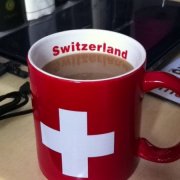Uncertain study: excessive coffee and tea are prone to reflux disease

For professional baristas, please follow the coffee workshop (Wechat official account cafe_style)
Many people like to drink coffee and tea, which they think can refresh their minds. But you know what? Studies have shown that drinking coffee and tea can easily induce throat reflux.
Compared with proton pump inhibitor (PPI) therapy, a plant-based Mediterranean diet and alkaline water significantly improved the symptoms of pharyngeal reflux (LPR), according to the study published in JAMA Otolaryngology-Head&Neck Surgery on Sept. 7.
"this study shows that supplementation of alkaline water and a Mediterranean diet without PPI can effectively control symptoms," said Dr. Craig H.Zalvan and colleagues at the New York School of Medicine. "other benefits of this diet-based approach include reducing the risk of cardiovascular disease, diabetes, stroke and cancer and improving the control of these diseases to avoid the risk of drug interactions or complications."
The researchers retrospectively analyzed the two groups of medical records that received different LPR treatments at different times. One group consisted of 85 patients (average age 60 years from 2010 to 2012) who were treated with esomeprazole twice a day or lansoprazole once a day. They also follow standard reflux precautions, including avoiding coffee, tea, chocolate, soda, alcohol and greasy, fried, and spicy foods.
In the other group, 99 patients (between 2013 and 2015 years old) with an average age of 57 received alkaline water and a Mediterranean diet (water pH > 8) in addition to standard reflux prophylaxis. Potential complication factors such as cough, history of neuropathic pain or dysphonia were excluded.
After 6 weeks of treatment, the researchers compared the changes of RSI index (Reflux Symptom Index) between the two groups. In 54.1% of those taking proton pump inhibitors, RSI decreased by at least 6 points, the smallest improvement considered clinically significant. The average decrease in the whole group was 27.2%.
At the same time, 62.6% of those who received alkaline water and diet had a significant improvement in RSI (the inter-group difference was 8.05, 95% confidence interval,-5.74-22.76). The average RSI of this group decreased by 39.8% (difference between groups, 12.1% 95% CIMagi 1.53-22.68).
However, when RSI was treated as a continuous variable, there was no significant difference in the average change of RSI between the two groups (5.92 vs 7.05; average difference, 1.12% CImai 1-3.24).
Patients in the two groups had different symptoms, such as cough, dysphagia and dysphonia, but the statistical significance of these differences could not be analyzed. This is the author's future research goal.
The disadvantages of drinking coffee and tea
In fact, drinking too much coffee and tea is bad for your health. Here is a detailed list.
The disadvantages of drinking coffee
1. Heart
Caffeine acts on the heart in two ways: in addition to affecting the brain center that regulates the cardiovascular system, caffeine also acts directly on the heart. High doses of caffeine can increase the heartbeat of people who do not tolerate caffeine by 10 to 20 beats per minute and may cause temporary arrhythmias in some people.
Therefore, moderate consumption of drinks containing caffeine (an average of up to 500 mg per day) does not significantly increase the risk of heart disease, but exceeding this dose may increase the risk of myocardial infarction.
2. Kidney
It is a common occurrence for many people to go to the toilet after drinking coffee in the morning. This is because caffeine affects adenosine receptors in the kidneys, acting like diuretics. Caffeine may also slow the brain's release of an antidiuretic hormone that reduces urine production.
3. Respiratory system
Caffeine and similar drugs have two effects on respiration. One is to increase the respiratory rate. In addition, caffeine relaxes the smooth muscle around the trachea, thus dilating the trachea and increasing breathing. However, caffeine can not be used as a drug to treat asthma.
The disadvantages of drinking tea
1. Injure the stomach
Drinking a lot of strong tea regularly is prone to a lot of physical discomfort, for example, it is easy to cause gastric juice dilution and can't digest normally. A person normally secretes 1.5-2.5 liters of gastric juice every day. These gastric juices can reasonably digest the food that a person consumes every day. When drinking a large amount of strong tea, it will dilute gastric juice, reduce the concentration of gastric juice, so that gastric juice can not digest food normally, resulting in indigestion, abdominal distension, abdominal pain and other diseases, and some even cause duodenal ulcers.
2. Hinder the absorption of iron by the human body
Tea contains tannic acid, black tea contains about 5%, green tea contains about 10%. When the human body drinks a large amount of strong tea, the combination of tannic acid and iron will be more active, bringing obstacles and effects to the absorption of iron, so that the human body shows iron deficiency anemia.
3. Drinking strong tea is easy to produce constipation.
The tannic acid in tea can not only bind with iron, but also combine with protein in food to form a kind of massive tannic acid protein, which is not easy to digest and absorb, which leads to constipation. For the elderly who suffer from constipation, it will make constipation worse.
4. Strong tea leads to elevated blood pressure and heart failure
Caffeine in strong tea can cause the human heart to beat faster, thus raising blood pressure; at the same time, a large number of strong tea liquid enters the blood vessels, which can increase the burden on the heart, produce uncomfortable symptoms such as chest tightness and palpitation, and aggravate the degree of heart failure. There is a limit to everything. Drinking light tea can keep you healthy, while drinking strong tea is harmful to your health.
For the sake of health, we should drink coffee and tea in moderation.
Important Notice :
前街咖啡 FrontStreet Coffee has moved to new addredd:
FrontStreet Coffee Address: 315,Donghua East Road,GuangZhou
Tel:020 38364473
- Prev

The first intelligent coffee shop in China was unveiled in Shenzhen! Have you ever tasted coffee made by AI robot?
Professional baristas Please follow the Coffee Workshop (Wechat official account cafe_style) at the second Shenzhen (International) Science and Technology Film and Television week, the first intelligent cafe in China was unveiled in the hard Egg Space Exhibition Hall in Shenzhen. This intelligent cafe, jointly built by hard Egg and Rethink Robotics, can not only make guests who come to taste coffee feel unmanned service, but more importantly, create
- Next

McDonald's pushed 2 yuan for coffee, but Starbucks raised its price.
Professional baristas follow the Coffee Workshop (Wechat official account cafe_style) while McDonald's is limited to offering two yuan special coffee (McCafe), Starbucks (Starbucks) quietly raised prices in areas such as Southern California in early September, ranging from drop coffee to espresso by 10 to 30 cents. Starbucks said in a statement that consumers in Southern California, according to their choice,
Related
- Workers collapse! Lucky suspects that it will introduce freshly cut fruits?!
- 1-point subsidy recipients wear thousand-yuan watches?! Local response: For low-income households
- Can lightly roasted coffee beans be used to extract espresso? How finely should you grind high-quality coffee beans to make Italian latte?
- What is the difference between the world's top rose summer coffee and Yejia Shefi? What are the flavor characteristics of Yega Shefi coffee and Panama rose summer?
- The ceremony is full! Starbucks starts to cut the ribbon at a complimentary coffee station?!
- A whole Michelin meal?! Lucky launches the new "Small Butter Apple Crispy Latte"
- Three tips for adjusting espresso on rainy days! Quickly find the right water temperature, powder, and grinding ratio for espresso!
- How much hot water does it take to brew hanging ear coffee? How does it taste best? Can hot water from the water dispenser be used to make ear drip coffee?
- What grade does Jamaica Blue Mountain No. 1 coffee belong to and how to drink it better? What is the highest grade of Blue Mountain coffee for coffee aristocrats?
- What are the flavor characteristics of the world-famous coffee Blue Mountain No. 1 Golden Mantelin? What are the characteristics of deep-roasted bitter coffee?

